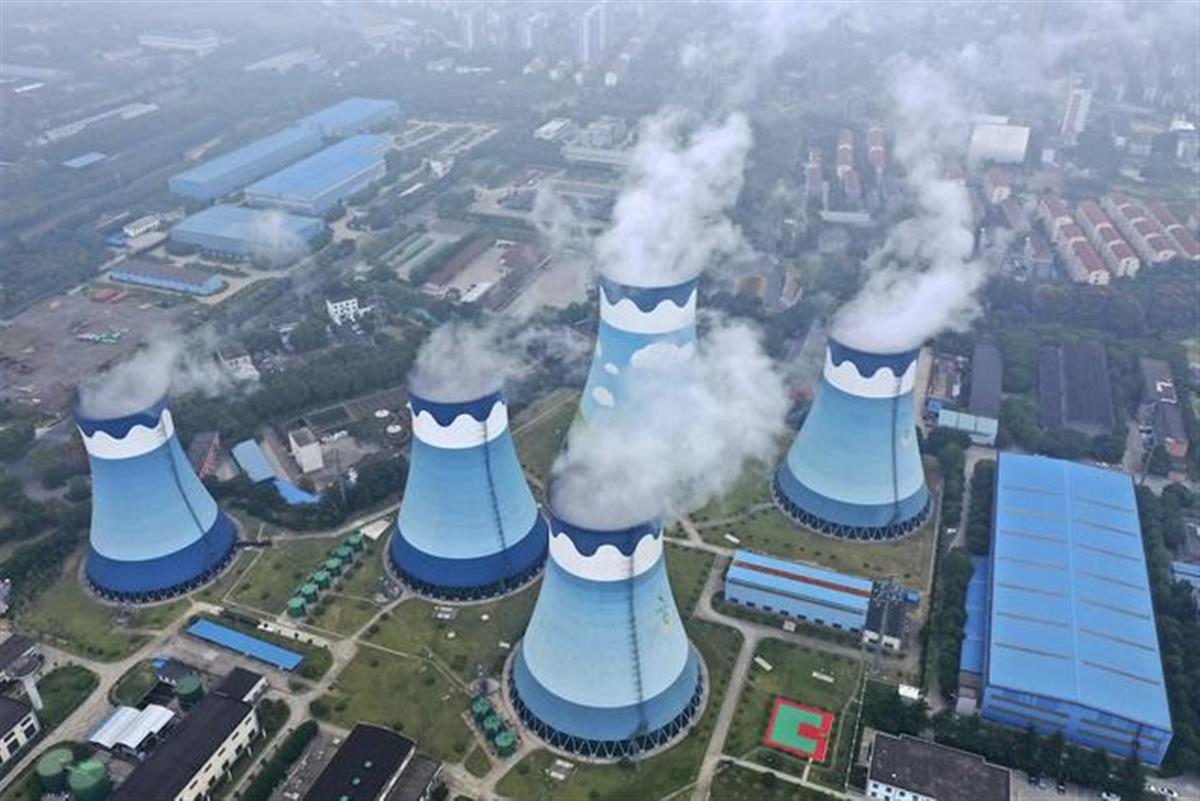
Steam billows from the cooling towers at a coal-fired power station in Nanjing, eastern China. China continues to rely heavily on fossil fuels despite vows earlier this year to cut emissions. (Credit: Keystone/Chinatopix/AP)
CLIMATE|#Fossil fuels|NEWS
by Michelle Langrand
Countries’ promises to ditch their dirty habits are far from reality. They’re globally projecting to produce twice as much fossil fuels by 2030 than the limit needed to keep global warming below 1.5ºC, according to a UN report released on Wednesday.
The analysis, conducted by the UN Environment Programme and several research institutes, reveals that despite recent pledges by countries and investors to cut their carbon emissions, they still have policies that largely support fossil fuels at least for the next two decades, which are inconsistent with Paris targets to limit rising temperatures
Compared to a previous assessment from 2019, the gap remains largely unchanged, the UN agency reported.
“The research is clear: global coal, oil, and gas production must start declining immediately and steeply to be consistent with limiting long-term warming to 1.5°C,” said Ploy Achakulwisut, a lead author of the report and scientist at the Stockholm Environment Institute.
“However, governments continue to plan for and support levels of fossil fuel production that are vastly in excess of what we can safely burn.”
When burned, fossil fuels release CO2 into the atmosphere, contributing to the global rise in temperatures. They represent around 85 per cent of emissions from human activities, according to the Intergovernmental Panel on Climate Change.
Gas, which is often argued to be the least dirty of the fossil fuel trio, is the one which will see the highest increase, with oil following in second place. Coal production, which causes the most amount of emissions out of the three, will barely shrink, the report states.
The findings come a week after China announced it was reopening previously closed coal mines to turn around a power crunch in the country that has been sending shockwaves through the global energy market since late September.
With only a couple of weeks to go before key climate talks in Glasgow, this has triggered a reality check whether countries could end up backing down from climate commitments to prioritise economic issues.
Since the beginning of the pandemic, governments have funnelled close to $300bn in new funds into fossil fuels.
Meanwhile, international public funds from G20 countries and major multilateral development banks have been gradually steering away from funding fossil fuels in the future, according to the document.
“Early efforts from development finance institutions to cut international support for fossil fuel production are encouraging, but these changes need to be followed by concrete and ambitious fossil fuel exclusion policies to limit global warming to 1.5°C”, said Lucile Dufour, senior policy advisor for the International Institute for Sustainable Development, which took part in producing the report.
The report looks at 15 major producer countries, including the United States, Russia, China, Brazil, and Saudi Arabia, which are largely slacking off in the transition towards renewable energies.
Canada, China and the US are looking to downsize coal production by 2030. They will however up-size their oil and gas sectors, as will Mexico, Saudi Arabia, Brazil and Australia.
Russia has plans to ramp up coal and gas while its oil sector will stay roughly unchanged. India is betting on expanding in all three areas, particularly on coal.
By contrast, Germany is bringing down coal and the UK is following suit for gas and oil. Out of the countries slammed for supporting fossil fuels, Brazil, China, the US and South Africa have made political commitments to net-zero within the next three to four decades while Germany, Canada and the UK have made it legislation.
.#Fossil fuels #UNEP #C02 emissions #Net-zero
Geneva Solutions content is licensed under Creative Commons BY 4.0.
SOURCE: GENEVA SOLUTIONS